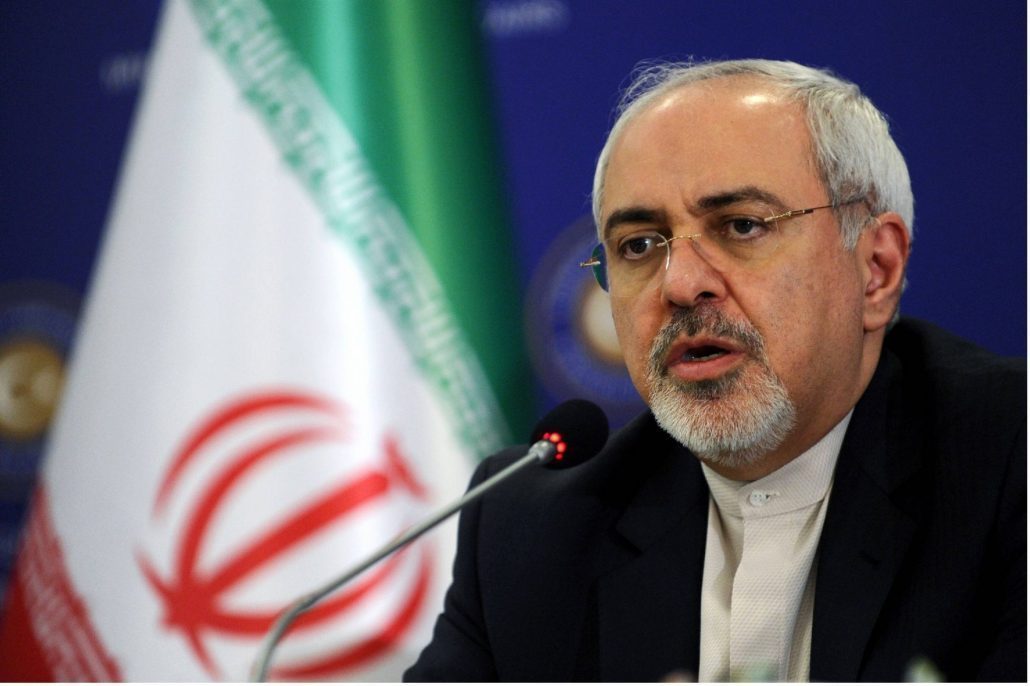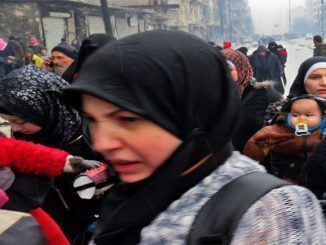
Iran’s Foreign Minister said that his country refuses any role for the US troops in Syria, adding that the nuclear deal must be maintained and its terms are not open for negotiations.
The US Defense Department might propose that the US send conventional ground combat forces into northern Syria for the first time to speed up the fight against ISIS.
“It’s possible that you may see conventional forces hit the ground in Syria for some period of time,” one defense official told CNN.
The Obama administration never embraced the idea of ground combat troops because of the inherent risks involved. If the idea is approved, it would signal a fundamental change in the Trump administration’s willingness to accept such risk.
However, such a move might sparkle tension with the powers currently active on the ground, Russia and Iran who won’t be happy with the US retrieving a strong role on the Syrian ground which may complicate their goals for Syria’s future.
Iranian Foreign Minister Mohammad Javad Zarif said that sending US ground troops to Syria to fight ISIS will fan flames of extremism in the region that will impact the security of the whole world.
Zarif claimed that a nationwide ceasefire in Syria — brokered by Russia and Turkey in December — was largely working, and said that sending US soldiers to fight ISIS would add fuel to the fire.
“We cannot commit to solutions that are part of the problem,” he said. “I believe that the presence of foreign troops in Arab territory is a recipe for those extremists to rally behind and gain new fighters from disenfranchised youth.”
Zarif added that Trump himself has accused former President Barack Obama of creating ISIS group and criticized Washington’s policy of arming so-called opposition groups in Syria.
“Further touching upon the foreign-backed crisis in Syria, Zarif said, “The same people who armed ISIS, armed the terrorist groups, were the same people who armed [Iraq’s executed dictator] Saddam Hussein, were the same people who created and armed al-Qaeda.”
“We should not continue to repeat history and then blame people who were on the right side,” he pointed out.
The nuclear deal will not be changed
Trump has said during his election campaign that the deal as “disastrous” and said it would be his “number one priority” to dismantle it.
These threats became clearer after Trump’s inauguration, as he signed an executive order temporarily barring thousands from seven countries in the Middle East and Africa, including Iran, from obtaining visas to travel to the United States.
The tension was raised again in issues related to Iran’s ballistic program, as he said that “Iran is playing with fire” and announced that “we’re officially putting Iran on notice.”
In addition, Trump declared applying sanctions on 25 individuals and companies connected to Iran’s ballistic missile program and those providing support to Iran’s Islamic Revolutionary Guard Corps’ Quds Force.
Zarif said that the nuclear deal will stay in place, despite noises to the contrary from members of US President Donald Trump’s administration.
Zarif added that there was an international consensus not to let the agreement — which took two years to negotiate — unravel.
“I believe everybody, including experts in the United States, knows this was the best deal possible for all concerned, not just Iran but the US too,” he said.
“It was a triumph of diplomacy over coercion because coercion doesn’t work anymore.”
He also pointed to the recent US bans imposed on Iran, the first by the US government since President Trump took office on January 20, and said sanctions would never work with the Islamic Republic.
“Everybody [in] the past who has tested Iran knows we don’t respond well to threats. We respond well to mutual respect and mutual interests,” the Iranian foreign minister added.
He said that all efforts by the Obama administration to use economic sanctions to curtail Iran’s peaceful nuclear program eventually failed.
“The reason Obama came to the negotiating table was because sanctions did not work,” Zarif said.



